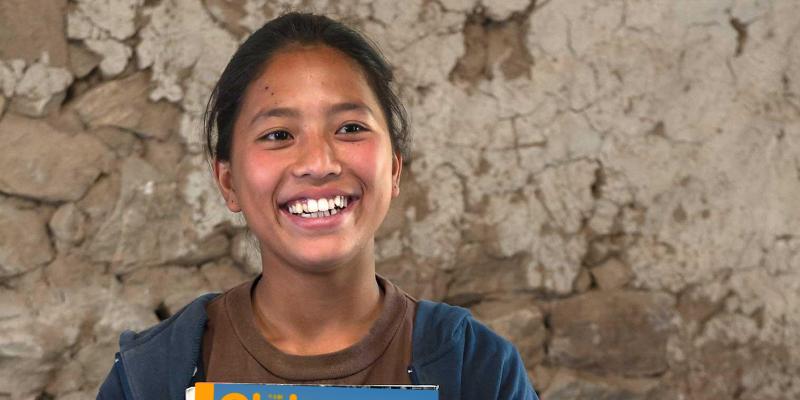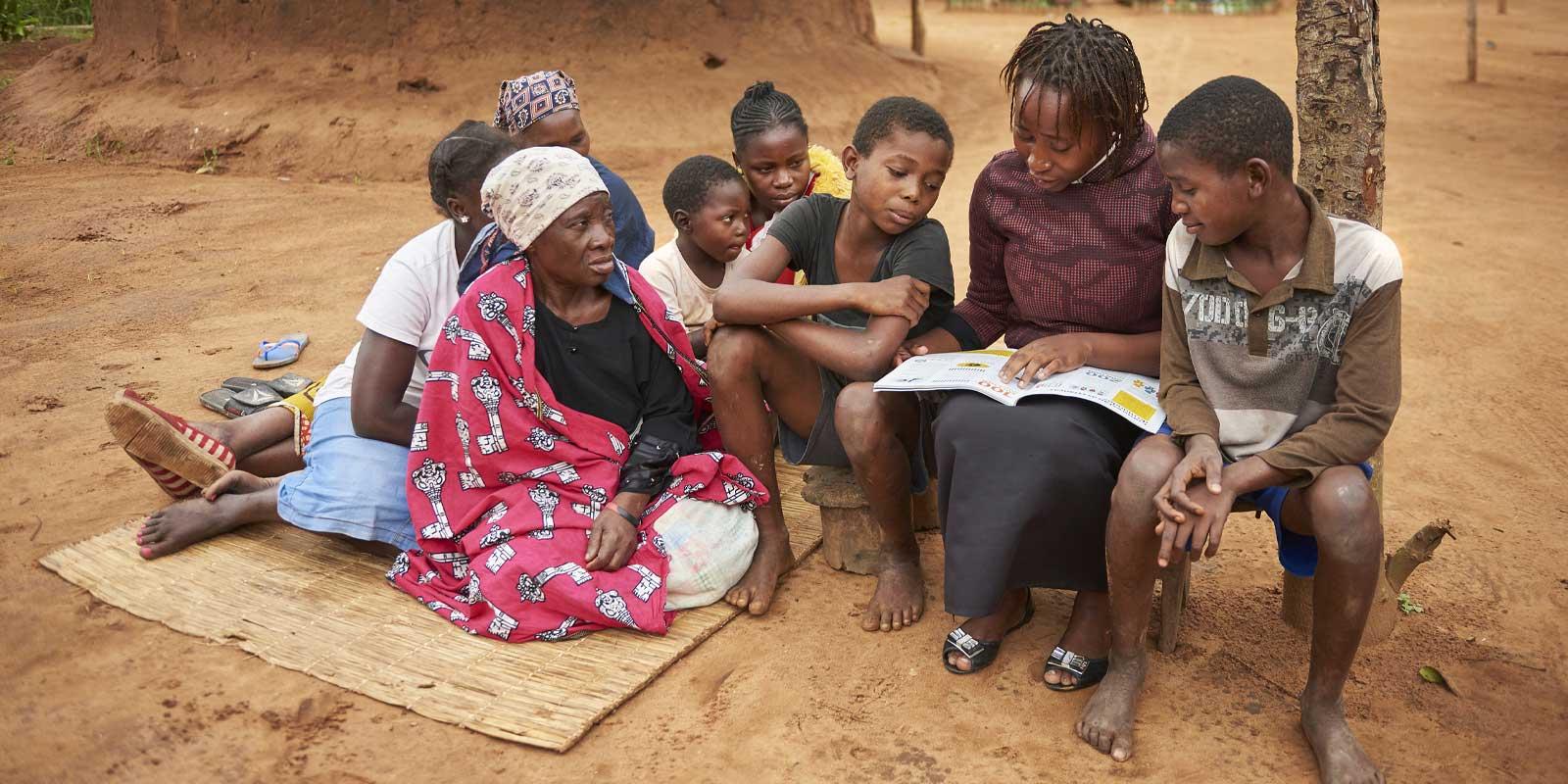
All children who have participated in the World's Childrenʼs Program can act as changemakers. Their mission, if they accept it, is to promote childrenʼs rights in their families, villages or towns and country.
Over 20 years of the WCP program 47 million children have learned about their rights. More than half a million teachers have learned how they can teach about children’s rights. Almost all these children and teachers have told their families, friends, neighbours and others in their villages and neighbourhoods about the existence of children’s rights and that they must be respected. Collectively they have been a huge force for change, reaching over half a billion people. And it just keeps spreading and reaching more and more people!

Start with your friend
Anyone can tell their friends about children’s rights, like this girl in Nepal. You can also accompany your friends to their homes and help them tell their families about children’s rights and that the equal rights of girls must always be respected.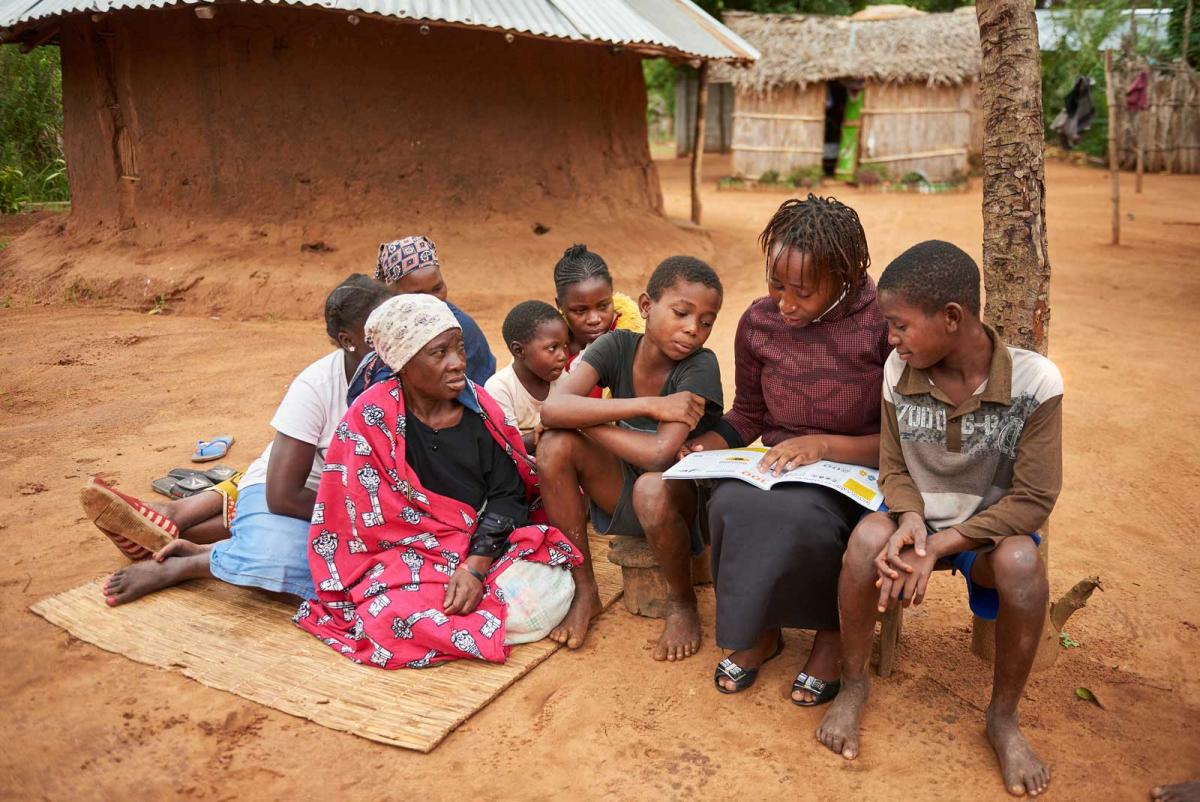
Family and neighbours
This girl in Mozambique is reading aloud from The Globe to her grandmother, siblings and neighbouring children. Many girls have reported how their fathers changed their attitude after having read The Globe and allowed them to continue in school.
Start a Child Rights Club
If you are a group of friends who believe that children’s rights are important, you can set up a Child Rights Club. You can then learn more together and plan how you can help other friends who have issues at home and girls who have been forced to leave school. Children have the right to make their voices heard about important issues, and together we can have the courage to do this!
Tell local leaders
Hassan and Kim in Zimbabwe invited leaders from several villages in order to tell them about children’s rights and the fact that girls and boys have equal rights. Leaders who support children’s rights and equal rights for girls are important changemakers.Discuss things with the police
The police are always required to accept reports of serious violations of children’s rights. Not all police know that children’s rights exist and that their country has promised to respect them. You can teach them, like this girl in Mozambique is doing here.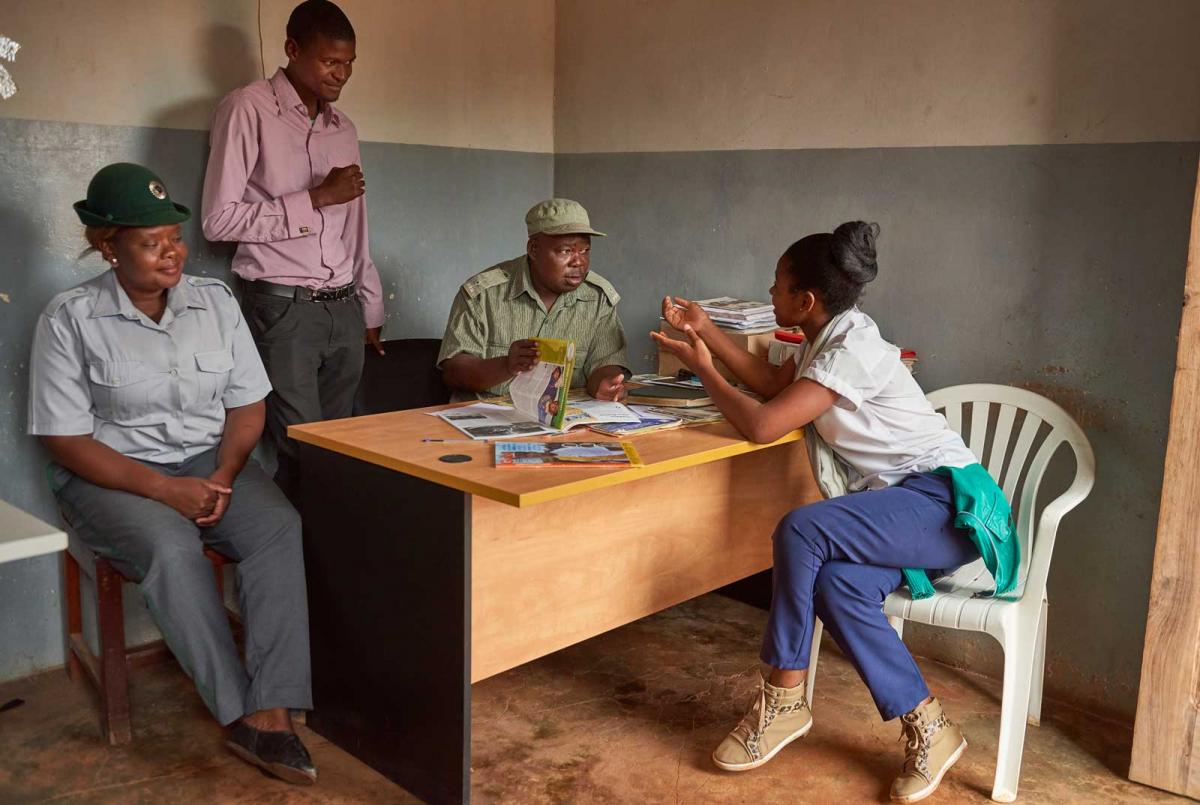
Visit authorities
Together we can have the courage to do more. Girls from a number of schools in Mozambique got together and requested a meeting with the school authorities. They reported that it was common for teachers to demand sex in return for giving girls pass marks so they could go up to the next class, and they demanded that this must be stopped. Their schools are now abuse-free!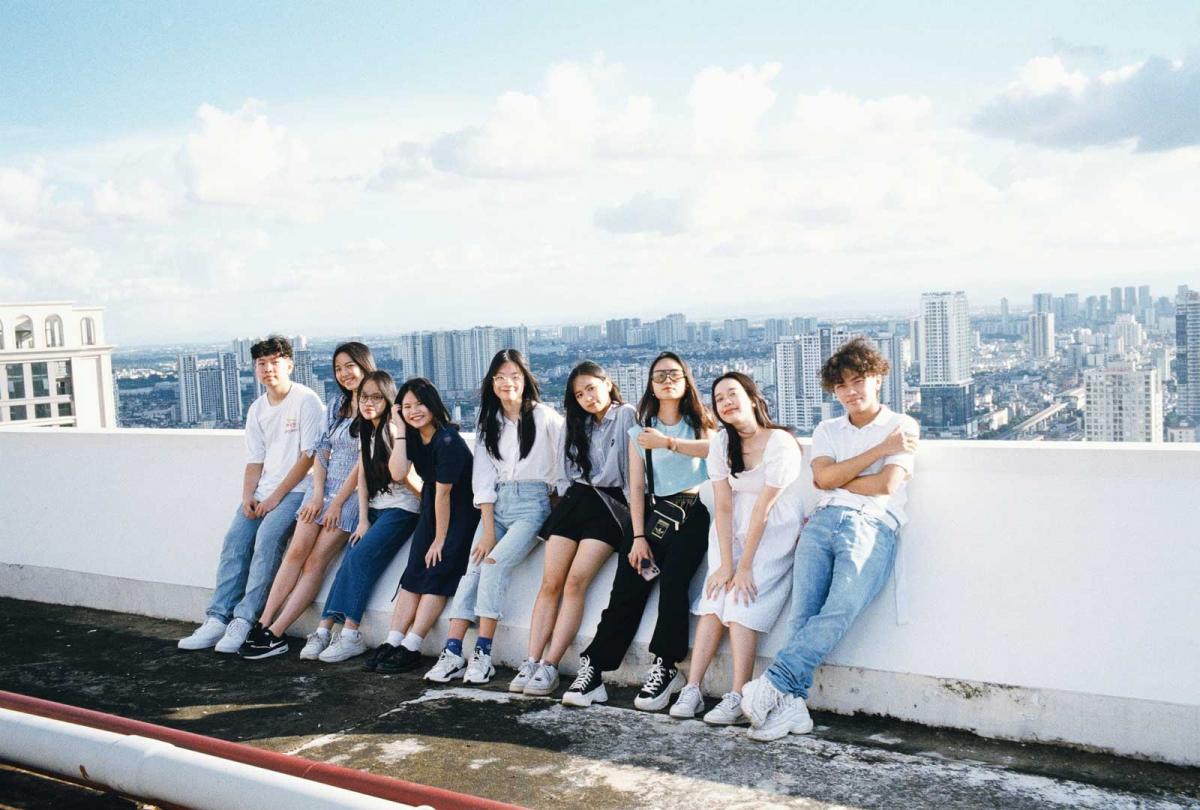
Child Rights Ambassadors
in Vietnam In Hanoi in Vietnam, nine teenagers have set up a Child Rights Club and trained as Child Rights Ambassadors with the help of The Globe and the WCP website. They then spread knowledge about children’s rights to their families, their local neighbourhood and in school, as well as on social media.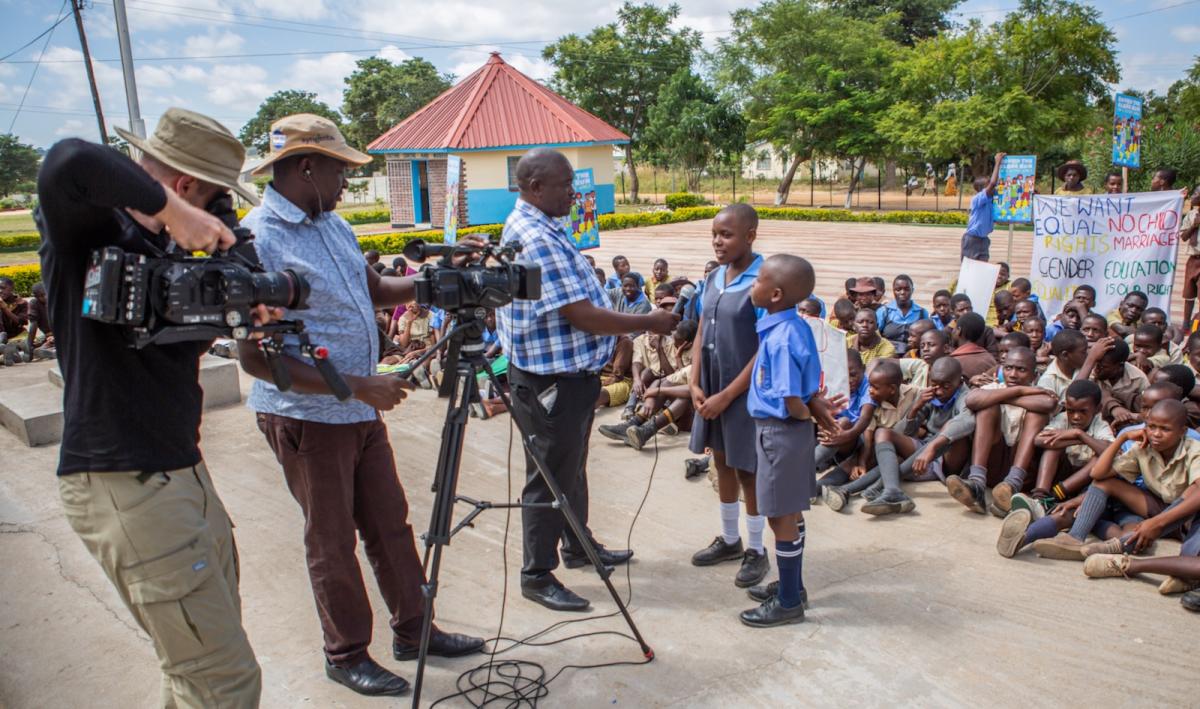
Contact journalists
You can ask journalists to report about children’s rights and about common violations of these where you live. Suggest that they interview you and your friends!Topics
Related documents
| Changemaker Day and mission | ||
| Guide: Changemaker Mission. |
Långgatan 13, 647 30, Mariefred, Sweden
Phone: +46-159-129 00 • info@worldschildrensprize.org
© 2020 World’s Children’s Prize Foundation. All rights reserved. WORLD'S CHILDREN'S PRIZE®, the Foundation's logo, WORLD'S CHILDREN'S PRIZE FOR THE RIGHTS OF THE CHILD®, WORLD'S CHILDREN'S PARLIAMENT®, WORLD'S CHILDREN'S OMBUDSMAN®, WORLD'S CHILDREN'S PRESS CONFERENCE® and YOU ME EQUAL RIGHTS are service marks of the Foundation.



